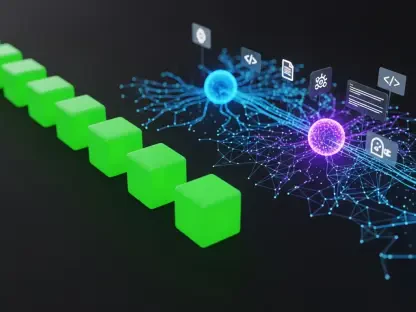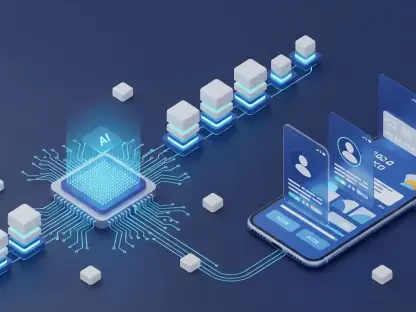Listen to the Article
In the not-so-distant past, developers spent hours scouring documentation, manually debugging lines of code, and building boilerplate code from scratch. Today, many of those time-consuming tasks are being offloaded to artificial intelligence. And AI did not come to play. From intelligent code completion to real-time document generation, this innovation is rapidly becoming an indispensable partner in the software development process.
But how do you make the most of this new norm?
This article will explore how AI is reshaping development workflows, what that means for engineering teams, and why B2B leaders can no longer afford to ignore this shift.
A new era of augmented development
The idea of a “co-pilot” in software development was once metaphorical. However, with tools like GitHub Copilot, JetBrains AI Assistant, and Amazon CodeWhisperer, AI increasingly acts as a collaborative assistant. It is embedded as an integrated development environment in the platforms where developers write and test their code. Because these AI-powered tools can interpret the broader context of a software project, they can review tasks, patterns of code, and the structure of an application to suggest improvements, complete functions, and structural changes. According to Stack Overflow’s 2024 Developer Survey, 76% of all respondents are using or are planning to use AI tools in their development processes, marking an increase from 2023.
These tools don’t just suggest autocompletion; they analyze intent, anticipate next steps, and generate entire blocks of context-aware code. This allows developers to move faster and focus on solving complex logic problems rather than repetitive syntax errors or structure.
Productivity gains
The productivity benefits of AI-assisted development aren’t just theoretical. Studies suggest that developers using GitHub Copilot complete tasks up to 55% faster. And in enterprise settings, companies using AI-enabled integrated development environments also report fewer bugs and faster iteration cycles.
Research from McKinsey estimates that artificial intelligence could boost productivity by 20% to 45% across the software development life cycle, from gathering requirements to testing and deployment. This represents a significant opportunity for tech-forward businesses to ship products faster, cut costs, and gain a competitive edge.
But speed is not the only factor; quality matters, too. AI tools can suggest best practices, identify potential security flaws, and even align code with a business’s architectural standards. For B2B firms managing large-scale, multi-developer projects, these enhancements translate into more reliable software and less technical debt.
Real-world use cases in B2B contexts
AI is no longer just a futuristic concept but a reality that is streamlining how developers across industries build, test, and maintain software. From startups to enterprises, development teams are embedding AI tools into everyday workflows. Here’s how developers are putting AI to work in real B2B environments:
Code generation: Developers at fintech firms use AI tools to create secure, scalable payment modules, cutting dev time from weeks to days while reducing the risk of coding errors.
Documentation: Software teams at SaaS companies are automating internal and user-facing documentation, including translation into multiple languages, improving consistency, and cutting localization costs.
Bug detection: Healthcare software developers use AI to scan for compliance risks in real time, thus streamlining QA and reducing manual review time.
Test automation: Engineering teams are integrating AI-powered test suites into their CI/CD pipelines to catch regressions earlier and reduce reliance on time-intensive manual QA.
For many B2B software teams, AI is not replacing developers—it’s removing bottlenecks, enabling faster iteration, and helping teams scale quality without increasing headcount.
Adoption challenges and what leaders need to know
While the benefits of AI in software development are compelling, enterprise-wide adoption still presents challenges. Data privacy remains a problem, particularly when sensitive code is entered into third-party AI models. To stay ahead of this issue, companies must carefully vet vendors and ensure integrations respect their robust security policies.
Trust in AI-generated code is another critical issue. Developers may lean too heavily on suggestions, assuming the AI is always correct. But unchecked reliance can lead to flawed logic or hidden vulnerabilities. To mitigate this, development teams should adopt human-in-the-loop practices, where AI assists, but final decisions stay with experienced engineers.
Training and onboarding are similarly important. Even powerful AI tools require thoughtful usage. Developers must be trained not only in how to use these systems but also in understanding where their outputs fall short, such as handling edge cases or interpreting ambiguous code structures.
Finally, there’s tool overload. With a flood of new AI copilots, plugins, and platforms entering the market, teams risk being bogged down by redundant tools and unclear standards. Instead of chasing every new release, leaders should pilot AI systems in focused, time-boxed environments, collect direct user feedback, and double down on tools that actually improve speed, quality, or collaboration.
In the end, thoughtful adoption, not rapid accumulation, is what unlocks sustainable value.
How AI is changing the developer skillset (for the better)
As more rote coding is handled by AI, the bar for what a “good developer” is rises, too. There’s increased emphasis on:
System architecture and design
Problem-solving and abstract thought
Critical examination of AI outputs
Domain knowledge (especially in highly regulated industries)
This shift offers new opportunities for deeper developer involvement and professional growth within B2B settings. Developers can have a more strategic position, working closer to business objectives rather than just throwing tickets over the wall.
The future…
The next wave in AI-assisted development isn’t just about autocomplete. Emerging AI agents can plan, code, test, and deploy features with minimal human input. Instead of writing code line by line, developers may soon act more like conductors, guiding AI agents across different stages of the software lifecycle.
This doesn’t mean replacing developers, but rather transforming the nature of development, no more than cloud computing has transformed infrastructure management, as AI revolutionizes software building.
For B2B businesses, preparing for this future means investing early—not just in tools, but in culture, policy, and training.
It is clear that AI is no longer a futuristic concept in software development, but a practical advantage that you ought to grab today. Whether you’re managing a lean startup development team or a global engineering firm, this advancement offers tangible gains.
AI is becoming the new co-pilot for developers, enhancing productivity, improving the skillset, and opening new strategic avenues for B2B firms. If you haven’t already, embrace this critical shift to code smarter and ultimately outpace the competition. The time to act is now.









